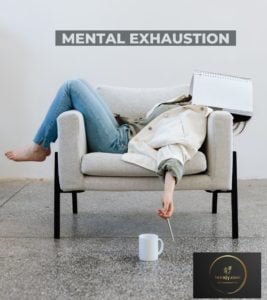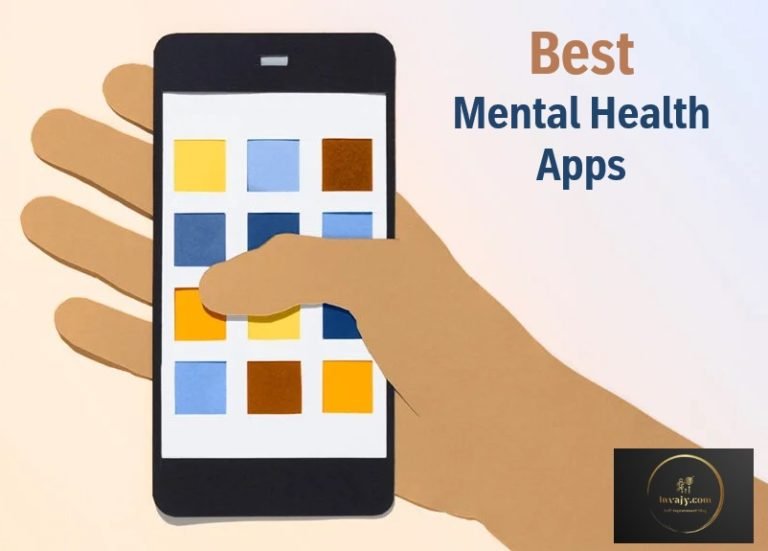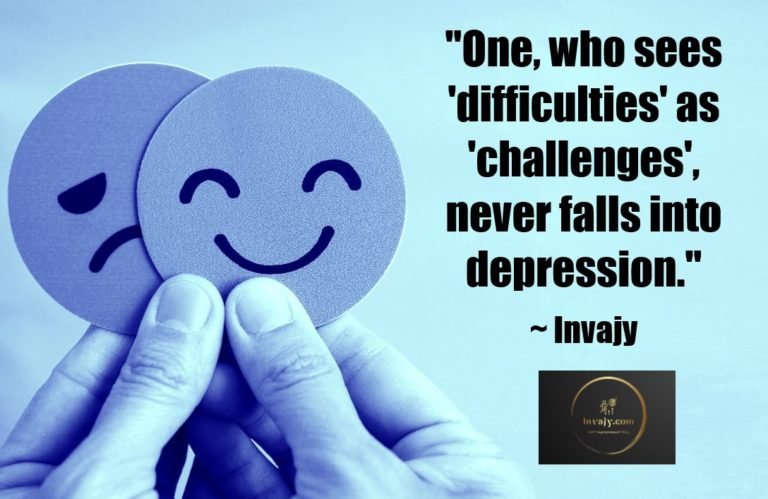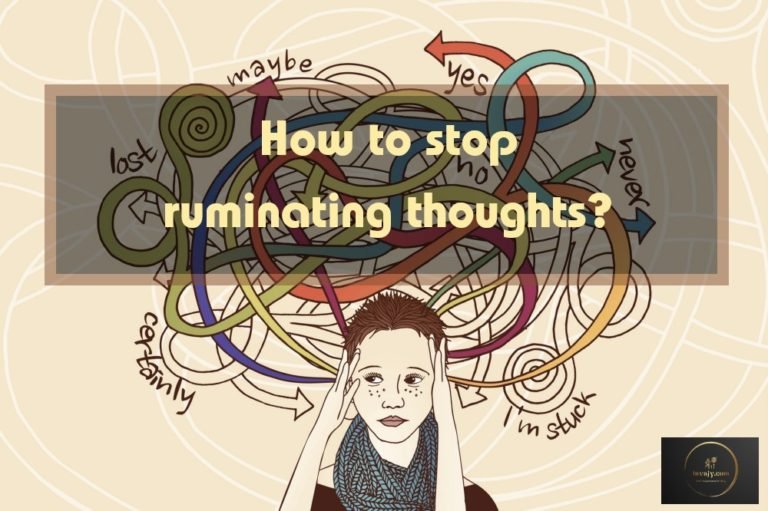Reclaim Your Energy from Mental Exhaustion
Combat Mental Exhaustion with practical tips and insights. Learn how to recognize signs, manage stress, and implement strategies to rejuvenate your mind and restore your energy.

Have you every experienced mental exhaustion or mental fatigue? If you are feeling mentally tired or mentally drained, you’re not alone. In today’s fast-paced and ever demanding world, mental exhaustion has become an increasingly common experience for many individuals. Also known as brain drain or burnout, this state of extreme mental tiredness can have a profound impact on your overall well-being and quality of life. Understanding the causes, warning signs, and strategies to overcome mental exhaustion is crucial for maintaining optimal mental health. In this article, we will delve into the concept of mental exhaustion, its potential consequences, and practical ways to prevent and recover from it.
What is Mental Exhaustion (or Mental Fatigue)?
Mental exhaustion is a state characterized by an overwhelming sense of mental fatigue, depletion, and reduced cognitive functioning. It often arises from prolonged periods of high stress, excessive mental workload, or a lack of sufficient rest and recovery. This condition can affect anyone, regardless of age, profession, or background, and may manifest differently from person to person.
How Does Exhaustion Affect Mental Health?
Long-lasting mental exhaustion or emotional fatigue may shorten your attention span and concentration. Mental exhaustion may also make you feel anxious, frustrated, sad, hopeless or irritable. You may experience trouble sleeping. Over the time, emotional exhaustion can lead to psychiatric problems such as depression or anxiety.
What Causes Mental Fatigue?
Following are the causes of mental exhaustion:
High Workload and Stress
Engaging in demanding tasks for extended periods without adequate breaks or support can lead to mental exhaustion. This commonly occurs in high-pressure work environments, where long hours, tight deadlines, and intense expectations prevail.
Mental exhaustion also occurs when your brain goes into overdrive after being exposed to stress and anxiety for a prolonged period of time — whether it comes from our work, relationships, life events, or all of those. As a result, a person may feel physically and mentally tired, lethargic, and unproductive.
Emotional and Psychological Factors
Continuous exposure to emotionally challenging situations, such as dealing with traumatic events or managing personal conflicts, can drain mental energy and contribute to exhaustion. Few people are extremely sensitive and carry the past emotional grudge for long time, such people develop chronic mental exhaustion. At the time of intense emotion they feel overwhelmed.
Monotonous or Repetitive Tasks
Engaging in repetitive tasks for extended periods can also result in mental fatigue. The lack of mental stimulation and variety can make the brain feel drained and lead to decreased motivation and focus.
Lack of Self-Care
Neglecting self-care practices, such as proper sleep, nutrition, exercise, and relaxation, can leave individuals more vulnerable to mental fatigue.
It’s important to note that the causes of mental fatigue can be interconnected, and individuals may experience a combination of factors contributing to their mental exhaustion. Understanding the causes can help individuals identify potential triggers and take proactive steps to prevent or manage mental fatigue effectively.

Signs of Mental Exhaustion
- Persistent feelings of tiredness and low energy.
- Lack interest in activities you usually enjoy
- Difficulty concentrating and making decisions
- Feeling overwhelmed
- Reduced productivity and motivation.
- Increased irritability, mood swings, or emotional sensitivity.
- Withdrawal from social activities and feeling a sense of detachment
- Crying or want to cry often
- Physical symptoms like headaches and muscle tension.
- Struggling to keep personal or work commitments
- Never being on time
- Having Trouble Sleeping
Overcoming Mental Exhaustion
We all know how to recover from intense physical exhaustion. But how do we recover from mental exhaustion? Mental exhaustion is usually not harmful and can be easily identified, prevented, and treated. Here are the tips and strategies to cope with mental exhaustion.
Prioritize Self-Care
Pay attention to your physical and emotional well-being. Establish a consistent sleep routine, eat a balanced diet, engage in regular exercise, and make time for activities that bring you joy and relaxation.
Set Boundaries and Delegate
Learn to say no when you are overwhelmed and delegate tasks whenever possible. Setting realistic expectations for yourself and others can help alleviate excessive mental strain.
Practice Mindfulness
Mindfulness exercises are scientifically recognized to reduce anxiety and stress. Practicing mindfulness can be the key to cope with emotional exhaustion or mental drain.
Mindfulness is simply the act of focusing to the present moment without judgement. This can help direct your attention away from negative thinking.
There are many ways to practice mindfulness. Examples include daily meditation, yoga, deep breathing exercises, mindful walking, and keeping a journal (brain dumping) to write down your emotions, feelings and thoughts. These practices can help restore mental balance and rejuvenate your energy levels.
Evaluate and Adjust
Regularly assess your commitments, responsibilities, and daily routines. Identify any sources of excessive stress or activities that drain your mental energy. Look for ways to reduce or eliminate these stressors and make adjustments that support your overall well-being.
Take Breaks
Incorporate regular breaks into your routine, allowing yourself time to rest and recharge. Stepping away from demanding tasks can improve focus, creativity, and overall mental well-being.
Establish Healthy Work-Life Balance
Evaluate your priorities and find a balance between work, personal life, and leisure activities. Set aside time for activities that bring you joy and fulfillment, whether it’s spending time with loved ones, pursuing hobbies, or simply engaging in activities that help you relax and recharge. Achieving work-life balance is important aspect.
Seek Support
Share your feelings and concerns with trusted friends, family, or mental health professionals. Sometimes, talking through your experiences can provide valuable insights, support, and guidance.
Wrapping Up!
Mental exhaustion is a prevalent and serious condition (definitely not life-threatening) that can impact various aspects of our lives. Recognizing the signs, understanding its causes, and implementing effective strategies to prevent and overcome mental exhaustion are essential for maintaining optimal mental health.
By prioritizing self-care, seeking support, and adopting healthy coping mechanisms, we can effectively navigate the challenges of our modern world and find balance, resilience, and renewed energy. Remember, taking care of your mental well-being is not only necessary but also crucial for leading a fulfilling and productive life. Never hesitate to seek professional help if the symptoms persist for a long time.
That’s all from my side. I hope, you liked this article on mental health. Please share this on your favorite social media portals with your friends and relatives.
(Disclaimer: This article is for general information only. Before adopting preventive methods/measures/treatment, please seek medical advice)






